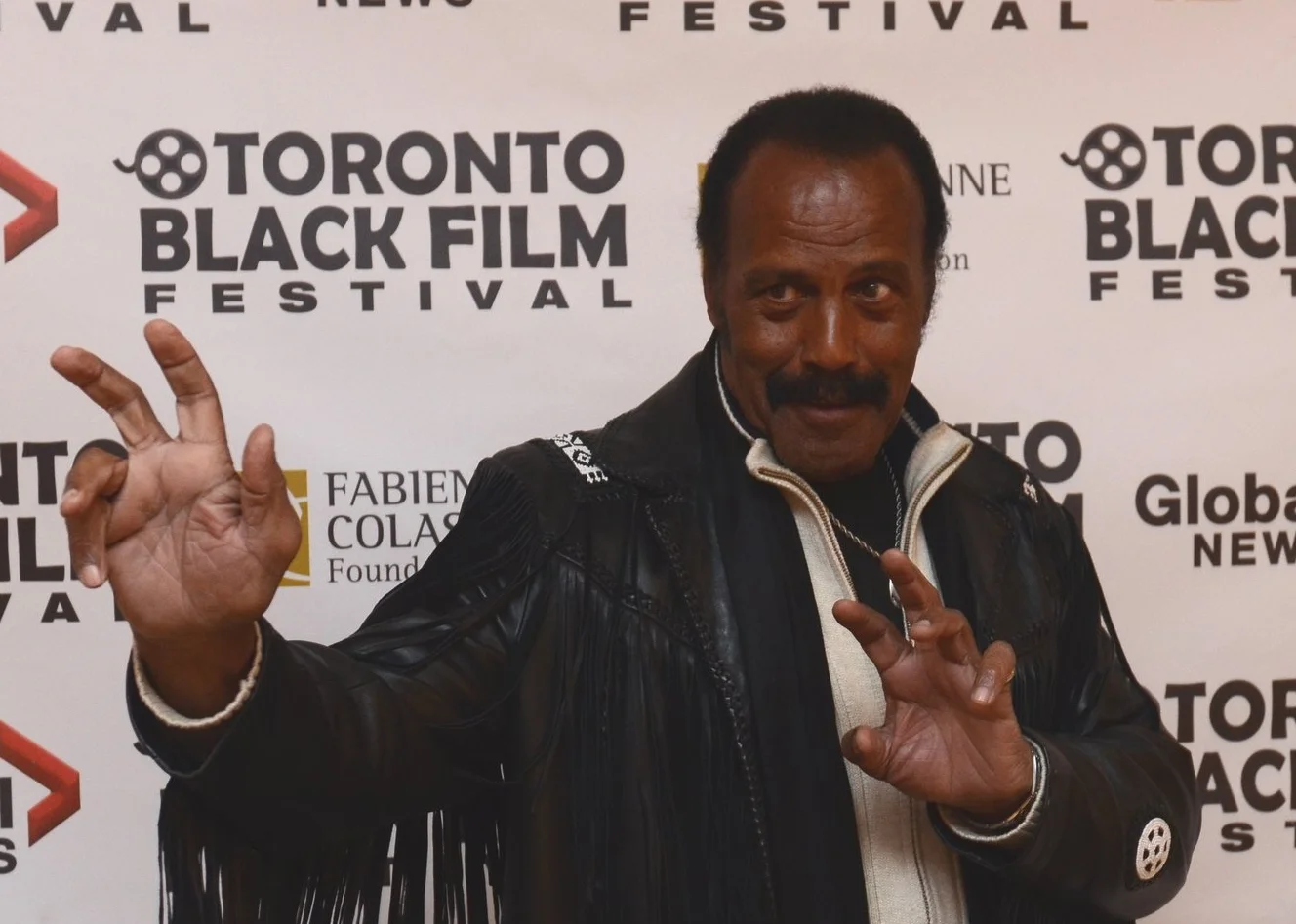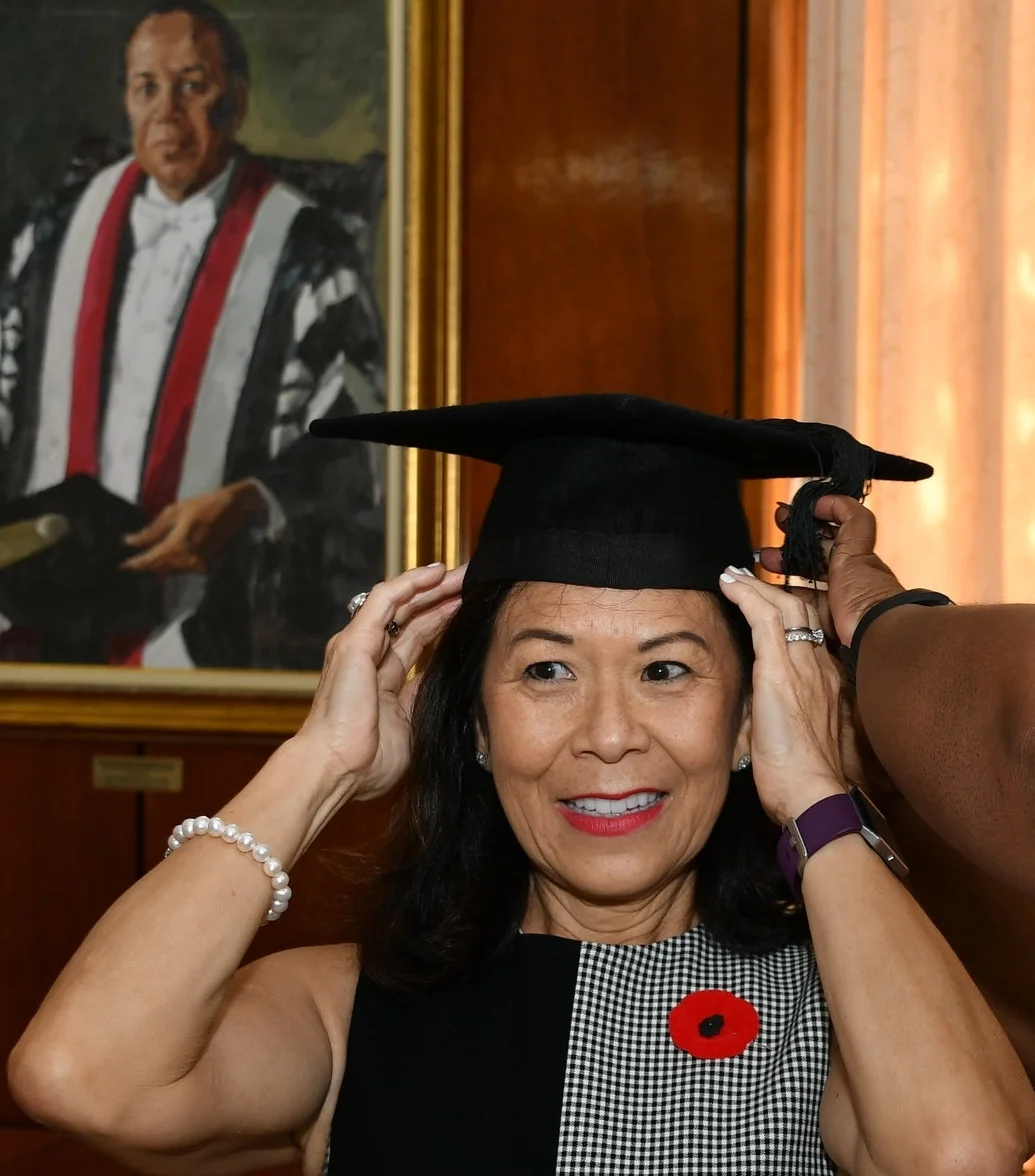Osgoode Hall honour for Kimberle Crenshaw
December 26, 2019
‘Why? I would ask, when a seemingly arbitrary rule was unanswered’.
Growing up, Kimberle Crenshaw asked her parents this and many other questions that often prompted the response, ‘Because we are the parents and we say so’.
“Yet asking these questions of society like, ‘Why do things have to be the way they are, who says so and why do their say so end all discussions were precisely the questions that they nurtured in me to ask of the wider world,” said the distinguished Law professor who was conferred with an honourary doctorate at Osgoode Hall Law School graduation ceremony. “…By the time I enrolled in Harvard Law School, the generation that grew up asking questions were asking new ones of legal education. Why were there no courses on race and racism, on women and the law, on Indian law, on poverty and the law, on immigration and why were there so few people of colour on our faculty and precious few women to teach those courses? Behind the many rationalizations offered about the school’s mission, what it was and wasn’t and we are a meritocracy, was in fact a familiar but unsatisfying answer, ‘Because we said so’.
“Of course, I saw no choice but to press and to agitate, to create new ways to think about legal education and ultimately about law itself. As I put it to my worried mom, these were the segregated lunch counters of our generation. What good was it for us to get in an institution if we couldn’t be legally served by the institution?”
Crenshaw said she and other students entering Law school in the aftermath of the civil rights movement witnessed first-hand what many of their elders may not have which was there was no once and for all victory against racial equality, segregation, settler colonialism or patriarchy.
“There was no natural axis upon which the law pivoted to be a force for equality, no evolutionary principle that would transform institutions that were damaged by our past into inherently equitable ones suitable for the future,” said the University of California, Los Angeles (UCLA) and Columbia Law School faculty member. “I have been disillusioned to find that law was no magic wand, but the clarity of that revelation activated me to swim against the tide of most of my classmates heading to law firms across North America. I found a place to think more clearly about law’s role in these, ‘because we said so’ moments and there were plenty of them. The law, I eventually discovered, had its own particular ‘because we say’ moment with Black women. When they asked why they couldn’t sue as victims of race and gender exclusion, even if Black men and White women weren’t also excluded, the court’s refusal to acknowledge this compound discrimination had a ‘because we said so’ finality to it.
“Of course, this unsatisfying justification was like red meat for me. I gnawed at it like a dog with a bone until I discovered that intersectionality could work as a word picture to capture precisely what was happening to people everywhere who were facing unaddressed injustices because, somewhere, the idea had settled in that we can only address inequalities one issue at a time. Well, who said so? Intersectionality gives people a word to ask that question and a prism to do something about it and people have done something about that the world over. Now, I share this with you not only to encourage you to take up the mantra, ‘Who said so’, with you on your journey, but to highlight that your future path and likely contributions wouldn’t simply fall from the sky, but will reflect an unfolding of who you are right now at this very moment.”
Intersectionality, noted Crenshaw, was a product of a particular historical moment and her generation came of age during an expanding vision of social inclusion across many vectors.
“We became layers in the riptide of its reversal,” she told the graduates. “You are at a similar historical junction. As you are entering the profession, democratic institutions are at risk, basic commitments to access to justice are being treated like unaffordable luxuries and the most powerful social movements these days are animated by folks who believe that their diminished over-representation in all spheres of life is the existential injustice of the moment. If one thing is abundantly clear, this world will not fix itself. We need good, questioning and committed lawyers.”
Crenshaw, whose work on race and gender was influential in the drafting of the equality clause in the South African Constitution, coined the term ‘intersectionality’ that she says is ‘a lens through which you can see where power comes and collides, where it interlocks and intersects’.
“Intersectionality developed in part because of Professor Crenshaw’s efforts to make theory from the things she saw played out in her life experiences as a Black woman in America,” said Osgoode Hall Law School Director for Feminist Legal Studies & Graduate Program Director Sonia Lawrence who presented Crenshaw to convocation. “Her work is both a struggle against the ways that legal doctrine constrains reality and a fight to ensure that scholarship listens to and speaks to the lives of real people.
“When you are reading, ‘Reclaiming Power & Place: The Final Report of the National Inquiry into Missing and Murdered Indigenous Women and Girls’, if you turn to page 103, you will find a description of intersectionality and why it was important in understanding the encounters analyzed by the inquiry commissioners. You will find Kimberle Crenshaw’s name written there.”
Kimberle Crenshaw received her honourary degree from Chancellor Greg Sorbara & Vice-Chancellor Rhonda Lenton
A leading authority on Black feminist legal thought and civil rights, Crenshaw was honoured for her contributions to scholarship and the academy, her service to social justice and communities and the intellectual power to be both a trouble-maker and conflict resolver.
After taking a selfie with the graduates, she reminded them that they have a critical role to play in legal delivery.
“Each and every one of you has been handed a precious ball that now, more than ever, cannot be dropped,” said Crenshaw who received her undergraduate degree at Cornell University and her Master of Laws at the University of Wisconsin. “Some days will be harder than others to hold on to it, to pass it on to the next generation. There will be those who say that they share your values, but will feign a realism that says it is impossible…In those times, it might seem easier not to question, not to prod, not to get out line, not to swim upstream. But then I want you to reach back to this day because that picture that you stored in your mind’s eye of you running with excitement. I want you to recapture that ball of energy in your soul and look squarely into the face of that authoritative ‘no’ and say, ‘Well, who said so’.”
Twice named Professor of the Year at UCLA Law School, Crenshaw is the founder/director of Columbia’s Centre for Intersectionality and Social Policy Studies and co-founder and executive director of the African American Policy Forum that highlights the centrality of gender in racial justice discourse.
In May 2016, City University of New York’s John Jay College of Criminal Justice bestowed Crenshaw with an honourary doctorate and Exceptional Merit in Media Award while Smith College, two years later, awarded her an honourary degree.







